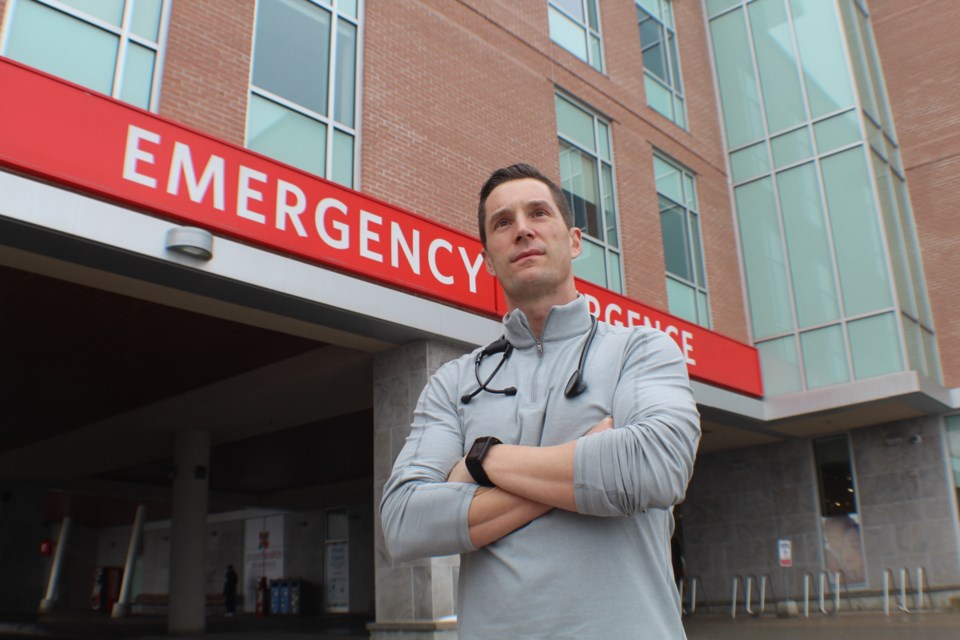A current uptick of COVID-19 cases provincially and locally is not expected to lead to the reintroduction of public health restrictions.
Officials at Barrie's Royal Victoria Regional Health Centre, meanwhile, are planning not just for the possibility of a surge or a new wave of infections, but also for the long term as it ramps up to full service while catching up with a backlog of surgeries.
The biggest challenge there, says Dr. Chris Martin, RVH’s chief and medical director of critical care, is maintaining a full staffing complement. On Wednesday, there were 134 staff absences related to COVID-19.
“Our staff is still regularly testing at home with rapid testing,” said Martin. “We’re a lot more cautious than other workplaces because of the at-risk population that we treat. As the restrictions have opened up, we’re probably going to lose more staff to exposure of positive cases.”
Health-care staffing has been a concern provincewide. RVH has implemented programs to build its staff organically. It is currently employing nursing students in their final year of schooling in hopes that once they graduate, they will join the local hospital staff.
Martin sees the need to expand upon that kind of approach, both in Barrie and provincially, to allow hospitals to continue to deal with any further surges in cases without being forced to curtail its operations again.
A halt in operations during the pandemic has increased the surgical backlog. Currently, RVH’s surgical volume is at 90 per cent of the 2019 or pre-pandemic volume.
“We have to plan on being able to take care of surges of COVID” while playing catch-up and maintaining regular service levels, he said. “We may see waves of this for years, potentially.”
He sees a need for investment in training, particularly in the area of critical care, to create a bigger pool of nurses so the hospital no longer has to pull from other areas of the hospital to fill staffing gaps.
“We’ve got lots of equipment, lots of beds. The human resource piece is still a work in progress,” he said. “We’ll always be able to take care of the patients for the region, we want to be able to maintain all of our services.”
On Wednesday, RVH had 13 active COVID-19 cases with two people in the intensive care unit (ICU) and another 18 resolved.
About 30 per cent of the cases are people who had COVID-19 symptoms, the remainder are “incidental” positive cases — people who sought medical attention for other reasons.
Provincially, there were 778 people in hospital and 165 in intensive care on Wednesday, that’s up from 611 hospitalizations a week ago.
Public health officials here are continuing to keep a close eye on all indicators and advise people to keep taking precautions such as wearing masks and keeping a physical distance. It is also encouraging vaccinations for those who are eligible, including booster doses for those 12 and above.
In the absence of widespread testing, the health unit monitors the incidence of COVID-19 transmission through positive reported case counts, percent positivity, the number and size of facility outbreaks and municipal wastewater surveillance.
Wastewater testing in Barrie, Collingwood, Midland and to a lesser degree in Orillia has shown an increase of COVID-19 since the beginning of March. Similar results are reflected in other health regions across the province.
Signals in wastewater may act as a lead indicator for changes in community infection levels.
“While we are aware of an upward trend in indicators of transmission, including wastewater detection locally and provincially in recent weeks, at this point we do not anticipate putting additional public health measures in place,” Simcoe-Muskoka medical officer of health Dr. Charles Gardner said in an email.



